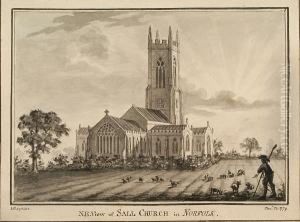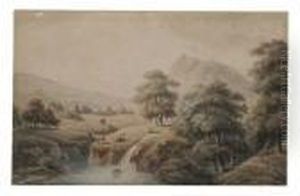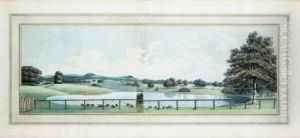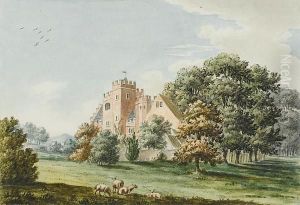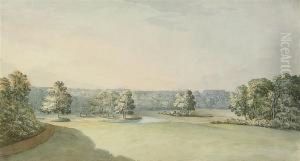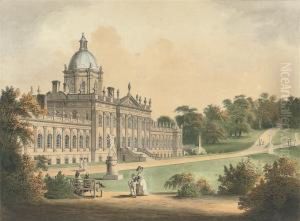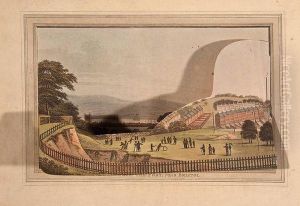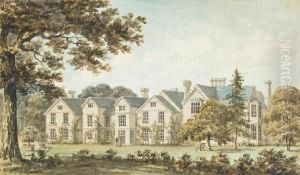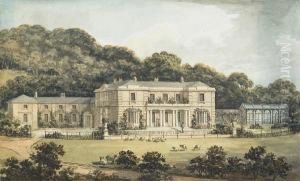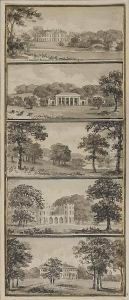Humphrey Repton Paintings
Humphrey Repton was a prominent English landscape gardener and author, who is often regarded as the successor to Capability Brown. Repton was born in Bury St Edmunds, Suffolk, England, on April 21, 1752. Early in his life, he tried his hand at various careers, including as a textile merchant and private secretary, but with little success. It wasn't until the age of 36 that Repton began to pursue a career in landscape gardening, an area where he would leave a significant mark.
Repton's entry into landscape gardening was facilitated in part by the decline of his predecessor, Capability Brown, and the demand for estate improvements among the English gentry and aristocracy. Repton introduced the term 'landscape gardening' to England, blending his interest in art, gardening, and social geography. Unlike Brown, who often reshaped landscapes on a grand scale, Repton's approach was more subtle and often involved the creation of 'picturesque' views that incorporated elements of the existing landscape.
Repton is known for his 'Red Books', which were elaborate proposals for his landscaping projects. These books included watercolor illustrations with overlays showing 'before' and 'after' views of the estate grounds. This innovative presentation technique helped his clients visualize the potential transformations. Repton's work was characterized by the harmonious transition between the garden and the surrounding landscape. He often included flower gardens near the house, where the family lived, and more natural, less-structured areas further away.
Throughout his career, Repton worked on over 400 projects, including Woburn Abbey, Longleat, and the Royal Pavilion at Brighton. His influence extended beyond practical landscaping as he published several influential books on garden design and theory, such as 'Sketches and Hints on Landscape Gardening' (1794) and 'Observations on the Theory and Practice of Landscape Gardening' (1803). These works contributed significantly to the theoretical foundation of landscape architecture as a discipline.
Repton's legacy lives on not only through his written work and surviving gardens but also through his impact on the development of the English landscape garden. He successfully adapted the ideas of his predecessors to the changing tastes and needs of his time, creating a more varied and intimate style of landscape gardening. Humphrey Repton passed away on March 24, 1818, in Romford, Essex, England, leaving behind a lasting influence on the art and practice of landscaping.
